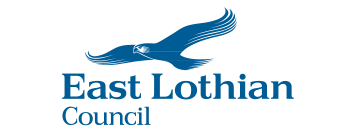Borders Innovation Park development progressing as City Region Deal marks mid-point
/At the half way point in its 15-year programme, the Edinburgh and South East Scotland City Region Deal is continuing to deliver, including the development of the Borders Innovation Park.
At the current Borders Railway terminus at Tweedbank, phase two of the project is progressing, creating further high quality business space.
£29m project to support businesses, jobs and growth
Costing £29 million, including contributions from the City Region Deal, ScottisH Borders Council and South of Scotland Enterprise, the project is being completed in three phases. It is stimulating business growth and associated job creation, enhancing the area’s inward investment offer, particularly to high-value sectors, and supporting existing businesses to improve their competitiveness and grow.
Attracting better quality, higher paid jobs is also helping to address inequalities in the area, providing greater opportunities for local people and also encouraging others to relocate to the Scottish Borders.
Councillor Scott Hamilton, Executive Member for Economic Growth and Developing the Borders
“The creation of the Borders Innovation Park is one very visible sign of the how the Edinburgh and South East Scotland City Region Deal is delivering for the Scottish Borders.
“Thanks to the Deal funding, our own investment and support from partners we are creating much needed business space which is helping deliver additional and new job opportunities.
“The City Region Deal is also supporting the Borders in other ways, including through the Regional Housing Programme, projects aiming to transform the energy efficiency of housing and tackle transport issues, and through the Integrated Regional Employability and Skills Programme. The latter has included the piloting of a Telecoms Academy within the Borders to support local jobseekers.
“As we now move into the second half of the Deal programme we need to continue to grasp the opportunities this funding and the collaborative work with partners across south east of Scotland provides.”
Ongoing project works
Construction of the Borders Innovation Park began in July 2020, with the first building in phase one opened in July 2022. It is fully occupied and construction of the phase two building is underway, and due for completion this summer. It will accommodate up to four businesses.
Delivering on the Deal
The Edinburgh and South East Scotland City Region Deal has delivered impressive results since launching in 2018, and has now reached the halfway point of its 15-year programme. So far, it's contributed £3.6billion to regional economic growth.
The Deal was signed in August 2018 and involves East Lothian, Midlothian, West Lothian, Fife, City of Edinburgh councils and ourselves, along with universities and colleges, the private sector, the third sector and relevant public sector agencies.
The 15-year Deal is worth £1.6bn, which includes £600m of Government funding and £1bn of funding from other partners.
The Borders Innovation Park project is part of the Research, Development and Innovation Programme within the Deal. Over 15 years, the UK and Scottish Governments have committed a combined £350 million to support the development of a number of initiatives in this part of the programme. Including partner contributions, this is worth a total of £791 million alone.










